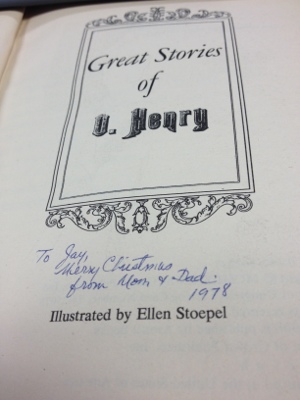It was another good day at the Kurt Vonnegut Memorial Library Book Club yesterday – for many reasons. First, we had two special guests, Majie Failey (author of a biographical book on Vonnegut, “We Never Danced Cheek to Cheek”) and author Dan Wakefield, who has a book coming out on Vonnegut’s letters at the end of October – not to mention he is also the author of the novel, “Going All the Way,” which was later made into a movie starring the then still relatively unknown actor, Ben Affleck. We also had, by my count anyway, five first time attendees and a record nineteen attendees in all. With so many people there I resolved to just “shut up and listen” for once and try to give others the opportunity to talk more.
I stuck to my strategy for the most part, except for one interlude when the topic came up about a letter Kurt wrote to his father while he (Kurt) was a prisoner of war. He advised his father not to write him back. There was some speculation on whether he said this because he actually didn’t want to hear from him or just because he knew the letter wouldn’t reach him where he was. At this point, it was revealed that the Vonnegut Library (located down the hall from where the book club meets) has among its displays a letter from Kurt Sr. to his son that has never been opened. If I am not mistaken, it was donated to the library under the expressed condition that it would remain unopened. One of our new attendees, an english teacher visiting from Ohio, was incredulous that such a potentially historical artifact had been left unopened. A brief debate flared up about whether it should be or not, with one member relating a story from his family about (I think it was) his mother who had requested that he and his sister burn an old box of love letters (without reading them, of course) when she passed away, since she wasn’t ready to part with them while she still lived. “And you did?!” asked the new attendee, again lamenting the loss of potentially historical documents. “Yes,” he said. “We honored her request.”
I eventually piped in and defended the “unopening” of the letter, relating, perhaps clumsily, the philosophical idea of the quality of the “indefinite.” While the letter remains unopened it can be thought to contain just about anything – a quality it would lose if its contents were to become known or fixed. We already have hundreds, maybe thousands, of letters related to Vonnegut that HAVE been opened so allowing one to remain unopened doesn’t seem so egregious. I admit this is a favorite concept of mine, reading about it a couple times before, once – I think, anyway – in Stephen King’s book, “On Writing: a Memoir of the Craft.” He spoke of the almost “magic” quality of an unspoiled ream of paper or notebook, awaiting whatever stories it might become. Kinda neat, huh?
The first time I remember reading about this is in a seemingly less likely place for a book blogger, though… In my years spent as a “serious amateur” playing in chess tournaments, I read many books about that game. One of my all-time favorites was by Scottish Grandmaster, Jonathan Rowson, who also studied philosophy and wrote a PhD thesis on “Wisdom.” His book was titled “The Seven Deadly Chess Sins,” covering in a general way the common types of mistakes chess players make in the course of play. Naturally, today I remember very little of that part of the book. What stuck with me was something he talked about in the opening chapter. Something called “the value of the indefinite.” For my money, it’s essentially the same thing we were talking about yesterday. Here’s the passage, talking about the starting position of a chess game:
“Let me borrow a Taoist idea to explain why this position is so fascinating. It is called ’the value of the indefinite’ and, suitably, is conveyed by considering an uncarved block of wood. Such a block has not been made into any particular object and serves no definite function. It has no distinctive shape and has no obvious aesthetic value. So if it’s worthless and plain you might suppose it’s not worth much, that it lacks value. The only way to make use of it is to carve it in a certain way, paint it, varnish it, make something of it, right? No. Give the matter further consideration and you see immense value in the uncarved block of wood. When you carve it, you gain something, but something else is lost. It may become one thing, but it loses its original potential for being an infinite number of different things. So, as Santo and Steele put it, in their Guidebook to Zen and the Art of Motorcycle Maintenance: ’A valuable actuality is gained, but an even more valuable reservoir of potentiality is lost.’ “
So, one never knows (or at least I never know) where discussions on books, authors and literature might lead. Perhaps that is why I enjoy them so much…
(Below: Chess Grandmaster Jonathan Rowson – a wise man indeed)





























